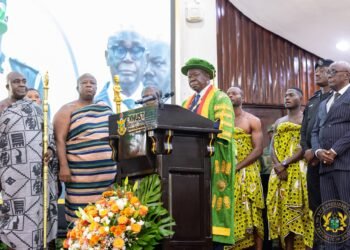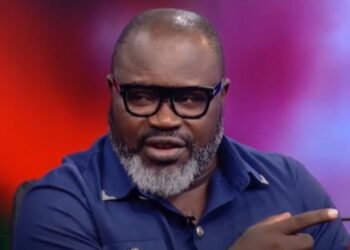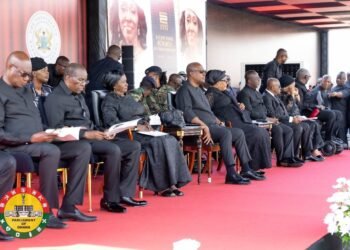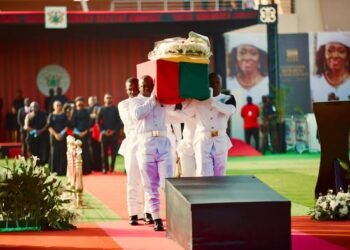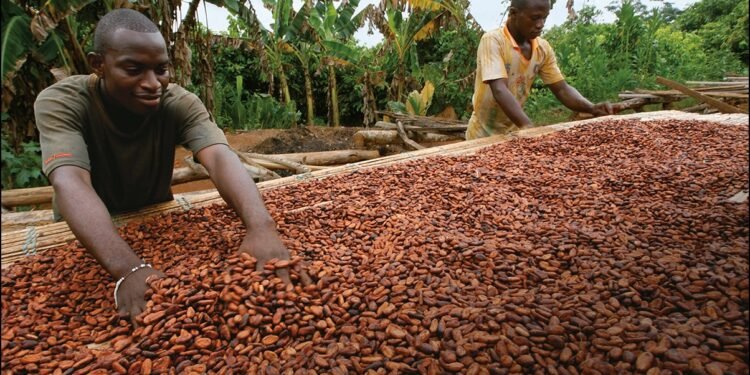In a critical appeal ahead of Ghana’s upcoming 2024 Presidential and Parliamentary Elections, Dr. Mohamed Ibn Chambas, the African Union (AU) High Representative for Silencing the Guns and Chairman of the AU High-Level Panel on Sudan, has called on Ghanaians to ensure that the electoral process remains peaceful, free from violence, and credible.
His remarks were made during the official launch of the Coalition of Domestic Election Observers (CODEO) election observation activities and the commencement of training for election observers in Accra.
During his address, Dr. Chambas praised Ghana’s electoral history, emphasizing the country’s consistent track record of holding peaceful elections. He stated,
“We have a track record that, yes, on our continent, in our sub-region, when they are counting countries that are known for generally peaceful, credible elections, Ghana, we are up there. And we want to keep it up there.”
Dr. Mohamed Ibn Chambas, African Union (AU) High Representative for Silencing the Guns
Ghana’s democratic achievements have been widely recognized, with previous elections receiving commendation from international observers for being generally free, fair, and transparent.
However, Dr. Chambas cautioned that past success should not breed overconfidence. He highlighted that maintaining this record demands continuous effort and vigilance from all involved parties, saying, “Past performance is not an assurance of future success. So, this is where vigilance is called for. Let’s not be complacent.”
A Shared Responsibility for Peaceful Elections

Dr. Chambas’ appeal extended beyond government officials and election bodies, urging all segments of society to contribute to ensuring peaceful elections. He emphasized that the responsibility for violence-free elections is shared by state institutions, civil society organizations (CSOs), and citizens alike.
This collaborative effort is essential to safeguarding Ghana’s electoral process and preventing any incidents of violence that could undermine the country’s democratic stability.
“There was an issue of violence that came up in the past. I think we’re all determined to make sure that this time around we’ll go back to normal, which is we want to have elections at the end of which no Ghanaian has to lose their life. That’s very, very important.”
Dr. Mohamed Ibn Chambas, African Union (AU) High Representative for Silencing the Guns
Dr. Chambas’ reference to past electoral violence, notably in some constituencies during the 2020 elections, served as a reminder that electoral processes can become tense, and therefore, efforts must be redoubled to ensure they remain peaceful.
The former UN diplomat further expressed confidence in the Electoral Commission (EC), saying, “We’ve had some very assuring words from the EC.”
“I would like to believe that they will work to improve on their past performance to give everybody the confidence that this process will be very, very credible and transparent.”
Dr. Mohamed Ibn Chambas, African Union (AU) High Representative for Silencing the Guns
The EC has played a key role in facilitating Ghana’s elections and has taken steps to improve transparency, including voter education initiatives and the introduction of new technologies to streamline voting processes.
Encouraging Women’s Representation in Parliament
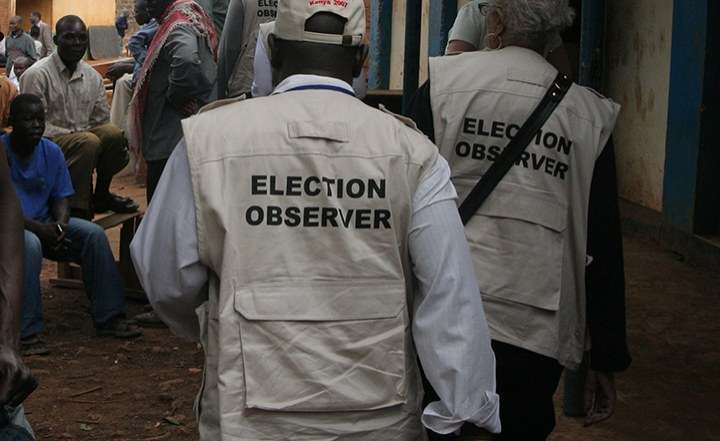
Another key point Dr. Chambas touched on was the issue of women’s underrepresentation in Ghana’s political landscape. Despite Ghana’s democratic advancements, the proportion of women in parliament remains low.
As of the 2020 elections, women make up less than 15% of the 275 Members of Parliament (MPs). Dr. Chambas urged Ghanaians to address this imbalance in the upcoming elections, stating that the next parliament should see improved female representation.
Efforts to increase women’s participation in politics have been a longstanding challenge in many African nations, including Ghana. Dr. Chambas’ call is in line with broader continental goals to promote gender equality in governance, a key pillar of the African Union’s Agenda 2063.
Dr. Chambas also lauded the efforts of the Coalition of Domestic Election Observers (CODEO) in strengthening Ghana’s electoral process through impartial monitoring and observation.
CODEO, a network of CSOs that promotes electoral transparency and fairness, has played a pivotal role in Ghana’s democratic journey by providing an independent assessment of the election day proceedings and outcomes.
“CODEO’s impartiality should be maintained. Its reputation for incorruptibility has been referenced,” Dr. Chambas said. The neutrality of election observers is critical in building public trust in the electoral process, particularly during a time when confidence in democratic institutions across the globe is being tested.
Ghana’s next general elections, scheduled for December 7, 2024, will see the election of a president and 276 Members of Parliament.
The stakes are high as political parties prepare to contest for leadership in what is expected to be a highly competitive election. Political tensions often rise during election periods, and the need for peaceful conduct and credible electoral processes cannot be overstated.
As the countdown to the 2024 elections continues, all eyes will be on Ghana to see if it can maintain its reputation as a beacon of peace and democracy in West Africa.
READ ALSO: Israel Says Hamas Chief Killed




